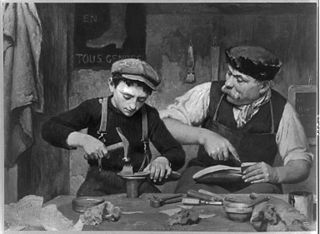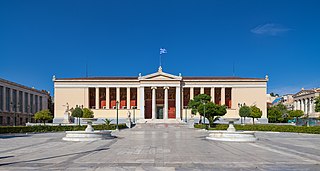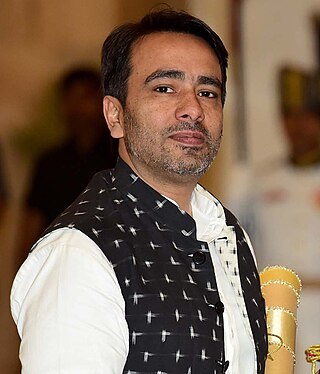Related Research Articles

Vocational education is education that prepares people for a skilled craft. Vocational education can also be seen as that type of education given to an individual to prepare that individual to be gainfully employed or self employed with requisite skill. Vocational education is known by a variety of names, depending on the country concerned, including career and technical education, or acronyms such as TVET and TAFE.

Apprenticeship is a system for training a new generation of practitioners of a trade or profession with on-the-job training and often some accompanying study. Apprenticeships can also enable practitioners to gain a license to practice in a regulated occupation. Most of their training is done while working for an employer who helps the apprentices learn their trade or profession, in exchange for their continued labor for an agreed period after they have achieved measurable competencies.
National Vocational Qualifications (NVQs) are practical work-based awards in England, Wales, and Northern Ireland that are achieved through assessment and training. The regulatory framework supporting NVQs was withdrawn in 2015 and replaced by the Regulated Qualifications Framework (RQF), although the term "NVQ" may be used in RQF qualifications if they "are based on recognised occupational standards, work-based and/or simulated work-based assessment, and where they confer occupational competence".

Education in England is overseen by the Department for Education. Local government authorities are responsible for implementing policy for public education and state-funded schools at a local level. State-funded schools may be selective grammar schools or non-selective comprehensive schools. All state schools are subject to assessment and inspection by the government department Ofsted. England also has private schools and home education; legally, parents may choose to educate their children by any suitable means.

Education in Greece is centralized and governed by the Ministry of Education, Religious Affairs, and Sports at all grade levels in elementary, middle school, and high school. The Ministry exercises control over public schools, formulates and implements legislation, administers the budget, coordinates national level university entrance examinations, sets up the national curriculum, appoints public school teaching staff, and coordinates other services.

A vocational school, trade school, or technical school is a type of educational institution, which, depending on the country, may refer to either secondary or post-secondary education designed to provide vocational education or technical skills required to complete the tasks of a particular and specific job. In the case of secondary education, these schools differ from academic high schools which usually prepare students who aim to pursue tertiary education, rather than enter directly into the workforce. With regard to post-secondary education, vocational schools are traditionally distinguished from four-year colleges by their focus on job-specific training to students who are typically bound for one of the skilled trades, rather than providing academic training for students pursuing careers in a professional discipline. While many schools have largely adhered to this convention, the purely vocational focus of other trade schools began to shift in the 1990s "toward a broader preparation that develops the academic" as well as the technical skills of their students.

Anil Manibhai Naik is an Indian industrialist, philanthropist and the chairman emeritus of Larsen & Toubro, an Indian engineering conglomerate, and a former chairman of the National Skill Development Corporation.
A dual education system combines apprenticeships in a company and vocational education at a vocational school in one course. This system is practiced in several countries, notably Germany, Austria, Switzerland, South Tyrol and in the German-speaking Community of Belgium, but also for some years now in South Korea.

Gateshead College is a further education college in the town of Gateshead, England. It offers further education for 16-18 year olds as well as higher education, apprenticeships, part-time adult learning and training for employers. Established on November 15, 1955 at Durham Road in Low Fell, Gateshead, it was closed in January 2008 for its displacement to the new main site located at the Baltic Quayside in Gateshead.
Vocational secondary education in Denmark takes place at special state-funded vocational schools (erhvervsskoler), most of which are either technical schools or business colleges (handelsskoler). The creation of vocational training began as early as the 1400s, but wasn't fully established until 1875 when Denmark passed legislation that would allow for the use of government grants towards technical and training schools. Vocational training schools are jointly run by business and trade associations, such as unions who hope to create a form of stream-lined training into the labour force. Through a combination of teaching in vocational schools and apprenticeship, mostly in private companies, students are trained for work in eight specific fields which include: construction, commerce, metal, agriculture, transportation, food, service, and media.

The Ministry of Labour & Employment is one of the oldest and most important Ministries of the Government of India. This is an India's federal ministry which is responsible for enforcement of labour laws in general and legislations related to a worker's social security. The Ministry aims to create a healthy work environment for higher production and productivity and to develop and coordinate vocational skill training and employment. However, Skill Development responsibilities, such as Industrial Training and Apprenticeship responsibilities were transferred to the Ministry of Skill Development and Entrepreneurship from 9 November 2014. The Ministry launched the National Career Service portal on 20 July 2015 to help bridge the gap between job providers and job seekers.

Highbury College is a further education college in Portsmouth, Hampshire, England. It offers vocational and academic education and training, including apprenticeships, A-levels and foundation degrees.
Vocational education is that form of instruction designed to prepare people for industrial or commercial employment. It can be acquired either formally in trade schools, technical secondary schools, or in on-the-job training programs or, more informally, by picking up the necessary skills on the job.

Tertiary education in New Zealand is provided by universities, institutes of technology and polytechnics, private training establishments, industry training organisations, and wānanga. It ranges from informal non-assessed community courses in schools through to undergraduate degrees and research-based postgraduate degrees. All post-compulsory education is regulated within the New Zealand Qualifications Framework, a unified system of national qualifications for schools, vocational education and training, and 'higher' education. The New Zealand Qualifications Authority (NZQA) is responsible for quality assuring all courses and tertiary education organisations other than universities. Under the Education Act 1989, The Committee on University Academic Programmes (CUAP) and the Academic Quality Agency (AQA) have delegated authority for quality assurance of university education. The Tertiary Education Commission (TEC) is responsible for administering the funding of tertiary education, primarily through negotiated investment plans with each funded organisation.

The Ministry of Skill Development and Entrepreneurship is a ministry of the Government of India which came into existence on 9 November 2014 and gazetted on 8 December 2014. After the formation of the first government of Narendra Modi on 26 May 2014, the Ministry of Youth Affairs and Sports was renamed as the "Ministry of Skill Development, Entrepreneurship, Youth Affairs and Sports" and was thereupon bifurcated after a cabinet reshuffle on 9 November 2014. The official gazette notification was published on 8 December 2014.
Polytechnic schools in Japan are vocational education institutions for short and long-term programs, a group of public human resources development facilities under paragraph (1) (i) of Article 15-6 of the Human Resources Development Promotion Law. It involves designated private sector as well.
TVE refers to all forms and levels of education which provide knowledge and skills related to occupations in various sectors of economic and social life through formal, non-formal and informal learning methods in both school-based and work-based learning contexts. To achieve its aims and purposes, TVE focuses on the learning and mastery of specialized techniques and the scientific principles underlying those techniques, as well as general knowledge, skills and values.
Apprenticeships have a long tradition in the United Kingdom, dating back to around the 12th century. They flourished in the 14th century and were expanded during the Industrial Revolution. In modern times, apprenticeships were formalised in 1964 by act of parliament and they continue to be in widespread use to this day.

TeamLease Services Limited is an Indian recruitment and human resources services company established in 2000 with its headquarters in Bengaluru, Karnataka. The company operates nine offices across India, with locations in Bangalore, Mumbai, Pune, Delhi, Ahmedabad, Kolkata, Hyderabad, Chennai, and Bhubaneshwar. It is publicly traded on both the National Stock Exchange (NSE) and the Bombay Stock Exchange (BSE).
References
- ↑ Gopalan, R. (2018). Development Mantra for Sustainability: Local Solutions for Global Adoption. Notion Press. p. 42. ISBN 978-1-947851-96-2 . Retrieved 16 September 2024.
- ↑ "TeamLease Group Website". TeamLease Group Website.
- ↑ "Private University Gujarat". University Grants Commission (India) . Retrieved 5 November 2015.
- ↑ "TeamLease Skills University gets provost, to start academic year". The Times of India . 7 June 2014. Retrieved 5 November 2015.
- ↑ "Coming Soon: India's first 'skills university'". Rediff. 17 January 2013. Retrieved 5 November 2015.
- ↑ Nadhe, Shivani Shinde (24 September 2014). "India's first vocational university kicks off". Shivani Shinde Nadhe. Business Standard . Retrieved 5 November 2015.
- ↑ "TeamLease Skill University, Labour Ministry sign MoU to expand apparenticeships in India". Business Standard India. Business Standard. 19 February 2015. Retrieved 5 November 2015.
- ↑ "TeamLease, Labour Ministry in pact to promote apprenticeship". The Economic Times. 20 February 2015. Archived from the original on 10 December 2015. Retrieved 5 November 2015.
- ↑ Choudhury, P.K.; S, S.B.G. (2021). Contextualising Educational Studies in India: Research, Policy and Practices. Taylor & Francis. p. 213. ISBN 978-1-000-38864-0 . Retrieved 16 September 2024.